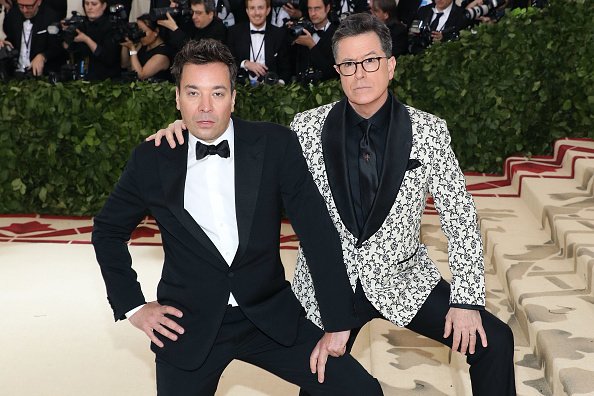Word is that Stephen Colbert’s agent knew back in late June that The Late Show was going to be canceled but decided not to tell Colbert until after he returned from vacation. Whether that was the right call — I’m with the agent; let the man enjoy his vacation — it does conveniently support Paramount’s “financial” justification for canceling the series, as the decision was apparently made not only before Colbert took the company to task, but even before the studio had settled with Trump.
I still think politics played a sizable role in the decision. Paramount still needs to push the merger with Skydance through, which may be easier now that they’ve curried more favor with the President by firing Colbert. But also, no one has disputed reports that The Late Show was losing $40 million a year for Paramount.
And yet, Colbert’s The Late Show isn’t just the top-rated show in late night — it brings in over 1 million more viewers a night than the third-place talk show, The Tonight Show with Jimmy Fallon. He has basically double the ratings. So why isn’t Fallon also in immediate danger of being canceled for “financial reasons”?
Because despite being third in the ratings, The Tonight Show generated $20 million more in ad revenue than The Late Show last year ($80 million compared to Colbert’s $60 million). Colbert’s revenue dropped 2 percent year-over-year, but Fallon’s actually grew 34 percent despite zero audience growth. What? Why?!
Politics, that’s why. Even when it’s not about Trump, it’s still about Trump ((Kimmel’s revenue, by the way, dropped 16 percent).
We here at Pajiba may be tiny baby tadpoles compared to the blue whales that are Stephen Colbert, Jimmy Kimmel, and Jimmy Fallon, but we exist in the same advertising ocean. And, in addition to being squeezed by AI snippets that steal our content and send us zero clicks in return, we’re dealing with the same advertising headwinds.
Advertisers hate politics. They don’t want anything to do with Trump. Or Epstein. Or the culture wars. Or #MeToo or “cancel culture.” In fact, the sentence I just wrote will probably cut the ad rates on this post in half. I’m dead serious. Damnit, the word “dead” just cut it another five percent.
Case in point: that Alison Brie and Dave Franco post I wrote first thing this morning: it’s a light, controversy-free video about a celebrity’s first crush. Compare that to Andrew’s post: “Jimmy Kimmel References Trump’s Friendship With Epstein in Response to New Attack.”
The Kimmel post is going to do two or three times the traffic of the Alison Brie and Dave Franco post. But guess which one will generate more ad revenue for the site? The Alison Brie post. Easily. Advertisers scan every post for keywords and bid on those ad slots accordingly. As soon as they see “Epstein,” “Trump,” or even “Me Too,” half the potential advertisers drop out. It’s killing us, which is why we’ve moved some of our political writing to Substack. But these days, it’s almost impossible to write about entertainment without writing about politics. Stephen Colbert’s cancellation — this very post — is the perfect example.
I say it’s almost impossible to talk about entertainment without writing about politics, but what I mean is that it’s almost impossible for us to do that. Or for Stephen Colbert. Jimmy Fallon has no problem with it. Collider has exactly one story about Colbert in the last week, and it makes zero mention of Trump or politics. They know how to do it.
And look: I don’t begrudge Collider one bit (OK, maybe a tiny bit). They’re trying to survive. And as soon as you bring politics into it, the ad rates go kersplat. Corporations want to advertise their yogurt on a show where celebrities play silly games or on the TikTok account of a fitness influencer. Dannon yogurt doesn’t want to run ads on a show where Stephen Colbert tells the President to go f**k himself. There are exceptions, but not many — and most of them (gold, pharma, reverse mortgages) spend their money on Fox News, where the audience is not only highly engaged and affluent, but easily manipulated. Colbert’s viewers, on the other hand, aren’t going to buy pillows from the MyPillow guy or boner pills from sketchy online pharmacies.
Digital ad rates are down 27 percent this year across the entertainment world. That’s because of politics. We’re feeling it — especially when we’re not writing about Gwyneth Paltrow and Ben Affleck’s sex life (good ad rates, thanks!). But when you’ve built your identity around resistance-era politics like Colbert has, twice the viewership of Fallon doesn’t cut it, unfortunately. Viewers may value it, but the people who pay the bills do not.


